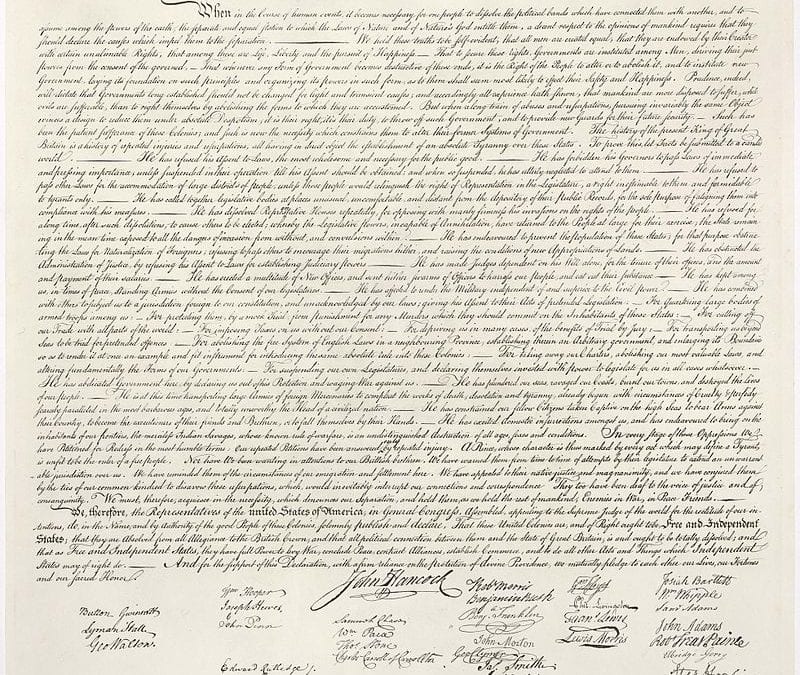There is no “social contract.”
The Declaration of Independence let King George know that the patriarchs of our Republic just were no longer that into him. The contract the Monarch believed was operable was declared null and void by those it excluded.
Even its postulators admit it’s a construct. But it is even more of a fiction, and a dastardly one at that, than believers hope. The idea is that we all participate in some sort of “gentleman’s agreement” (and the gender is hardly coincidental) through which we agree to certain rules and roles and a system of getting along as self-interested individuals that have to do just that.
This is not out of any Noblesse oblige but out of rational self-interest. If I am a wild-arm-swinger I can swing away, so far as my swinging does not knock you in the nose. And so forth. Otherwise we would all have bloody noses and bloody knuckles and the essential good of commerce could not commence and woe to all, in tooth and claw.
To get to the social contract, one must do that funny little dance that is philosophy, a skip or two away from where the pedestrian walks, as notably expressed by that erudite egalitarian John Rawls, summed up here in the equally accessible “Stanford Encyclopedia of Philosophy,”
“The original position is designed to be a fair and impartial point of view that is to be adopted in our reasoning about fundamental principles of justice. In taking up this point of view, we are to imagine ourselves in the position of free and equal persons who jointly agree upon and commit themselves to principles of social and political justice.”
Of course, some people are not rational – neither “fair” nor “impartial” and thus not able to sit at this table in such an exalted, yet-equitably-minded perch, in this “original position.” For some reason they are deficient, and membership, by necessity, must be limited to those only who participate in “good faith.”
Women, enslaved humans, and original inhabitants all stayed home when the Founding Fathers worked out just how this whole equality thing would work.
Who decides what is “good faith,” you might ask? But of course it must be the reasonable, fair and impartial members of the social contract. It is a self-selecting membership, and it decides the parameters of what is, and is not, allowed. Not too different, I suppose, than the clubs where Stanford philosophy students and professors like to sit around and chew the fat.
Anyhow… The social contract is fundamentally elitist. It is founded on the notion of participating individuals that must only act in “rational self-interest” even when veiled behind various devices meant to cloud that fact. And therein lies the rub, that no device can cloak, that power protects itself. There is no impartial stance, however cleverly conceived.
There is no “social contract.” And demanding that those who have been excluded even from its pretense behave according to its precepts is a fool’s errand. And a selfish fool at that. At some point those not part of the game of splitting up social goods, are going to say F— your contract, and choose to alter or abolish it.
This content was originally published here.

